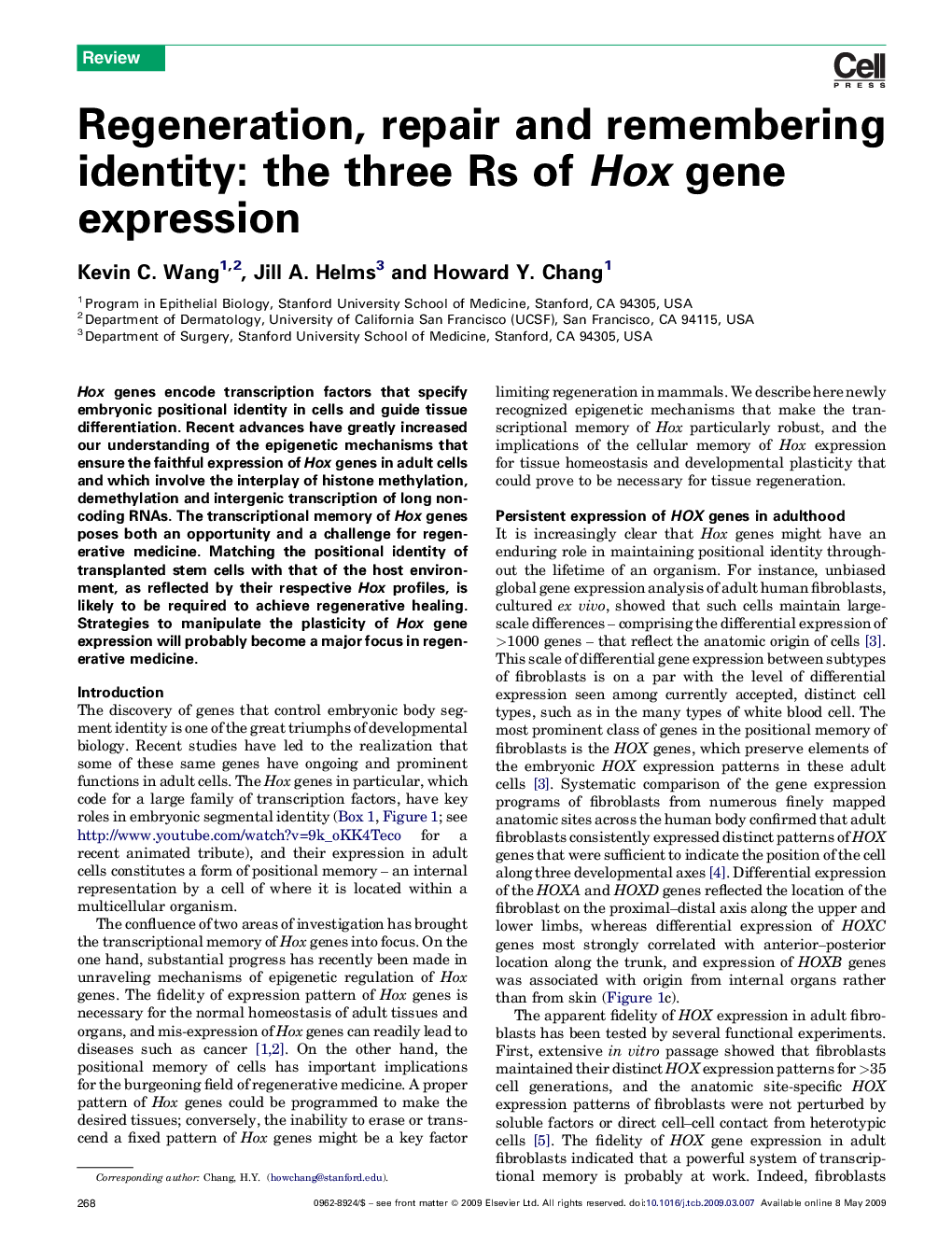| Article ID | Journal | Published Year | Pages | File Type |
|---|---|---|---|---|
| 2204892 | Trends in Cell Biology | 2009 | 8 Pages |
Hox genes encode transcription factors that specify embryonic positional identity in cells and guide tissue differentiation. Recent advances have greatly increased our understanding of the epigenetic mechanisms that ensure the faithful expression of Hox genes in adult cells and which involve the interplay of histone methylation, demethylation and intergenic transcription of long non-coding RNAs. The transcriptional memory of Hox genes poses both an opportunity and a challenge for regenerative medicine. Matching the positional identity of transplanted stem cells with that of the host environment, as reflected by their respective Hox profiles, is likely to be required to achieve regenerative healing. Strategies to manipulate the plasticity of Hox gene expression will probably become a major focus in regenerative medicine.
